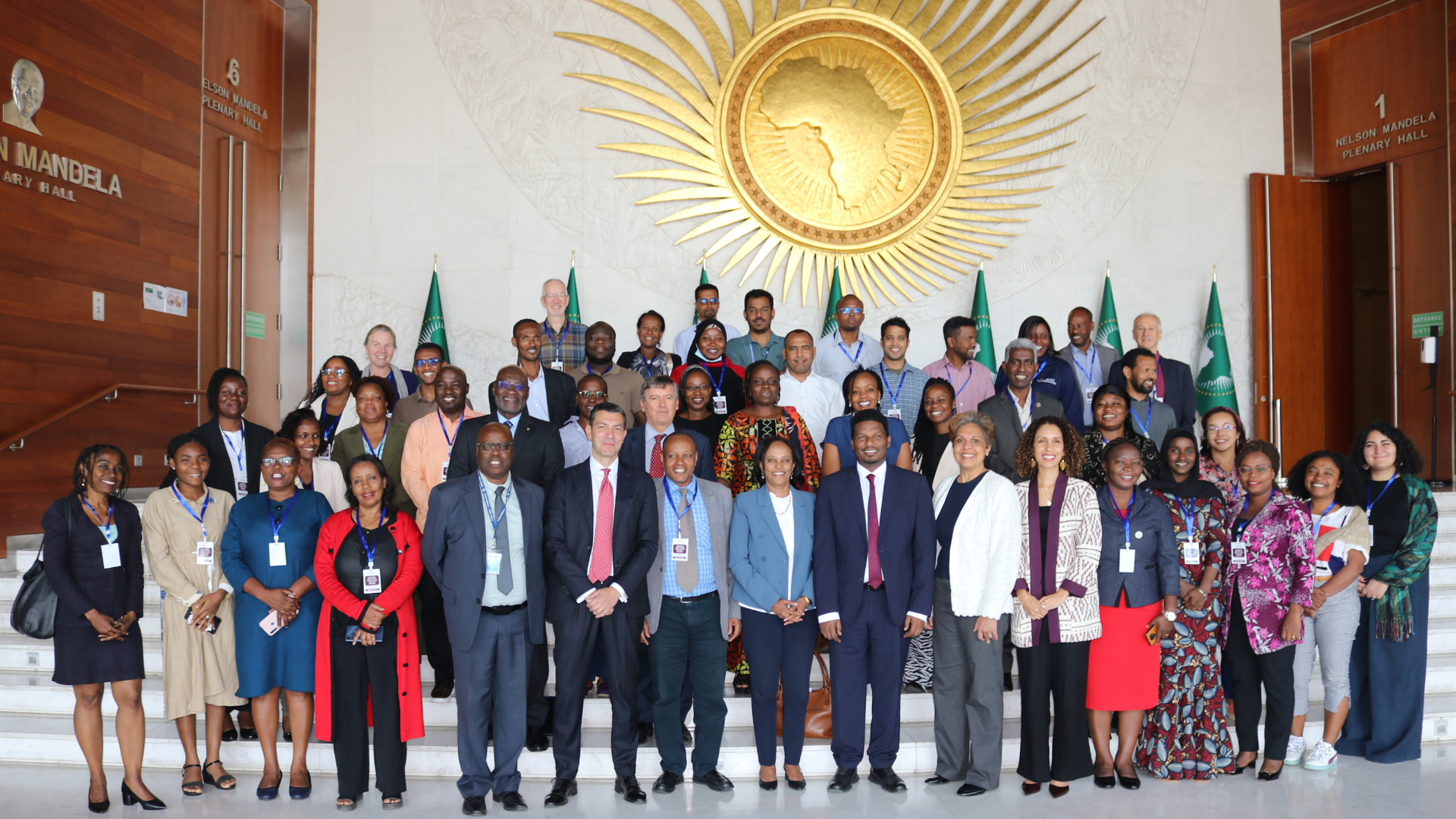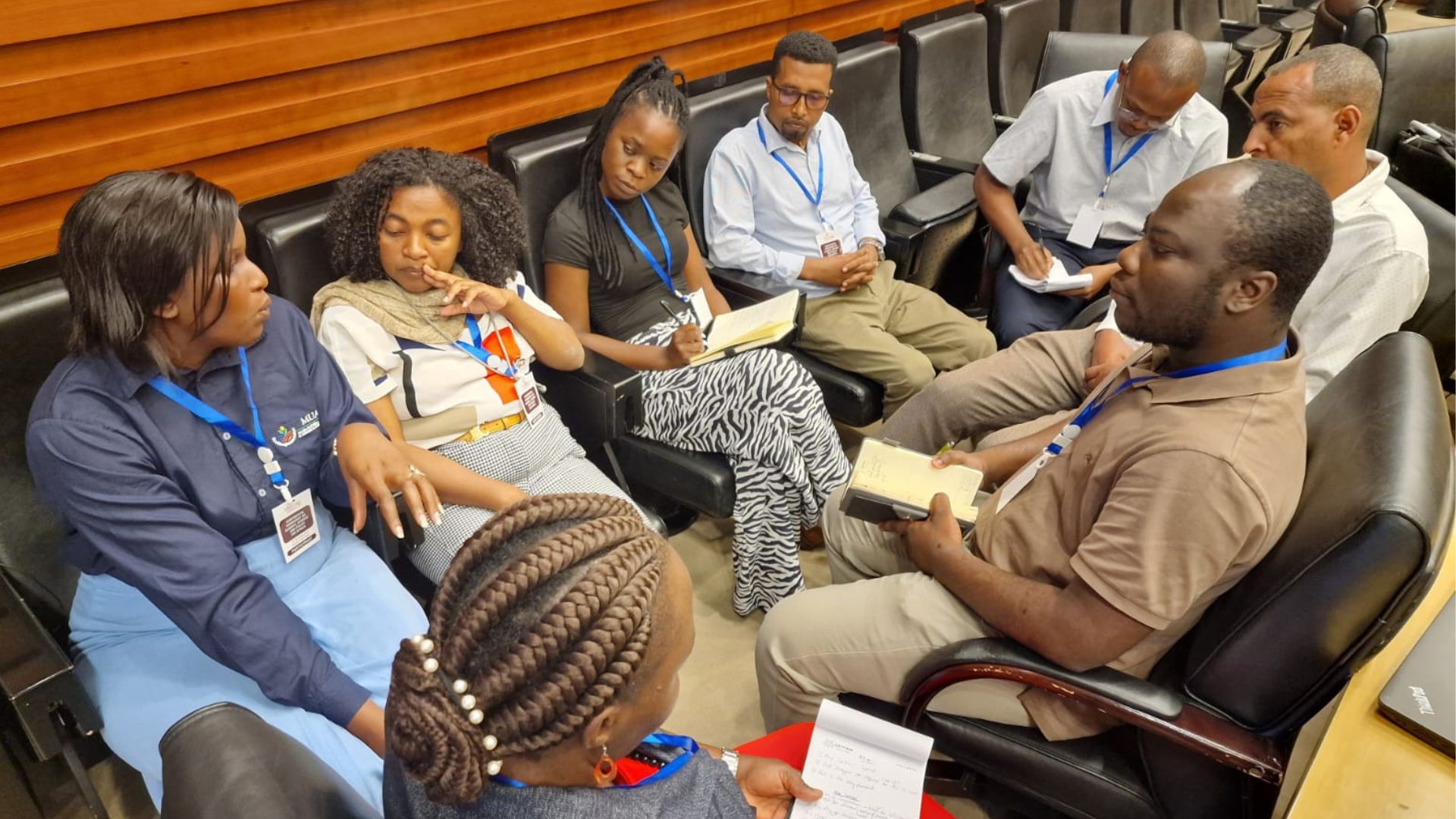Addis Ababa, Ethiopia – The UNESCO-TWAS workshop Science-based Solutions for Climate Action in Africa kicked off yesterday, 28 October, bringing together 14 speakers and 30 participants who are strengthening their skills to address climate-related challenges through interactive sessions and collaborative learning.

Taking place at the African Union headquarters in Addis Ababa, the event features training sessions on leadership, team-building, education, and the role of community and faith-based networks in helping people respond to and recover from challenging situations.
Among the participants are 10 African women scientists who have long been engaged in climate research, supported by TWAS-Elsevier Foundation Project Grants for Gender Equity and Climate Action; 10 PhD students who benefit from a TWAS-Sida PhD Scholarship for Climate Research for Students from Least Developed Countries; and 10 early-career professionals from Addis Ababa—some from non-scientific background—who have the opportunity to learn within a scientific context and enrich discussions by sharing their personal experiences.
Participants come from 14 countries, many of which are UN-identified Least Developed Countries: Bangladesh, Benin, Botswana, the Republic of the Congo, Ethiopia, Ghana, Kenya, Malawi, Mozambique, Niger, Rwanda, Tanzania, Uganda, and Zimbabwe.
The workshop is supported by The David & Lucile Packard Foundation and The Elsevier Foundation. The event addresses some of the most pressing climate-related challenges facing our planet today, exploring science-based solutions and emphasizing the importance of interdisciplinary collaboration. Extreme weather events—such as heatwaves, floods, and droughts will be the starting point to explore the science of climate resilience and highlight adaptation strategies.
"I joined this workshop because I want to deepen my understanding of science-based solutions to tackle climate change and strengthen resilience in our communities,” said Lydie Stella Koutika, a climate scientist at Soil Care and Environmental Studies, Republic of the Congo. “But beyond the technical knowledge, I’m here to connect. Being part of a network of like-minded scientists gives me hope,” added Koutika, who is the recipient of a TWAS-Elsevier Foundation Project Grants for Gender Equity and Climate Action in 2023 on empowering rural women to fight climate change and secure staple food through agroforestry systems. “I believe that science, when grounded in real-world challenges and informed by local knowledge, can drive powerful change—especially in regions such as those of the Congo basin. This workshop is a step toward that shared future."
Today, the workshop began with the keynote lecture by Yalem Mekonnen, a 2022 TWAS Fellow and a professor of cell and human physiology in the Department of Biology at Addis Ababa University. Mekonnen, who is Ethiopia’s first woman professor and a former ambassador scientist appointed by the Alexander von Humboldt Foundation of Germany from 2016 to 2021, offered reflections on the role of women in science and society.
“Women have a major stake in every aspect of our daily lives. Society places high expectations on them — from bearing children and caring for their families, to serving as educators, innovators, and leaders. They take on the lion’s share of responsibilities, yet continue to face gender-based discrimination,” said Mekonnen. “We cannot achieve the SDGs without women fully on board — without them, progress leads nowhere.”
In the late-morning working session, researchers explored the climate issue by integrating concepts such as trust in human potential, peacebuilding, and collective cohesion—elements rarely included in scientific contexts.

"I'm inspired to learn from climate leaders and women in STEM," says Agnes Luhanga, a TWAS-Sida Climate PhD Scholar on a Sandwich Program between Mzuzu University's Department of Agrisciences in Malawi and Cornell University's Department of Global Development. As the founder of Nyalu Agribusiness Hub, Luhanga adds, "As someone dedicated to empowering women farmers, I'm eager to integrate new insights into my work and foster regional collaborations. A key takeaway for me, as an early-career scientist, is that science must remain flexible and responsive to socio-political realities to drive meaningful and lasting impact."
Tomorrow, the final day of the workshop, will focus on climate literacy and sustainability education. Participants will be invited to share reflections on climate education, global collaboration, and both individual and collective engagement.
About TWAS
Founded in 1983 and officially inaugurated in 1985, TWAS supports sustainable prosperity through research, education, policy, and diplomacy. With its partners, it has graduated over 1,230 PhDs and supported more than 980 postdoctoral fellowships. The Academy also bestowed over 1,200 prizes, awarded over 2,800 research grants, trained over 750 individuals in science diplomacy, and supported over 1,400 exchange visits. TWAS is based in Trieste, Italy, and is administered as a Programme Unit of UNESCO.
For media inquiries, please contact:
Giovanni Ortolani, Public Information Officer, gortolani@twas.org
Cristina Serra, Staff Writer, cserra@twas.org – mobile: +39 338 4305210

